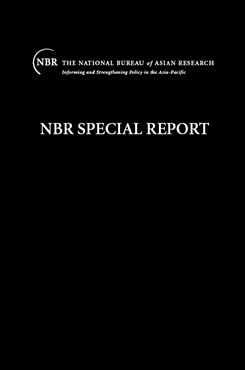NBR Special Report
Evaluating Track II Approaches to Security Diplomacy in the Asia Pacific
The CSCAP Experience
This study of CSCAP activities and their impact on the ARF provides some support for epistemic community propositions in the areas of innovation, early warning, and consensus building.
The national Councils on Security Cooperation in the Asia-Pacific (CSCAPs) are fine exemplars of Track II security diplomacy whose mission is to prepare studies and recommendations on security matters for their governmental Track I counterparts in the ASEAN Regional Forum (ARF). The CSCAPs also provide a test of propositions drawn from the epistemic community literature in international relations which posits that nongovernmental experts can influence government decision-making by addressing issues considered too sensitive, premature, requiring greater time for deliberation, and in need of innovative conceptualization before they can be addressed by governments.
This study of CSCAP activities and their impact on the ARF provides some support for epistemic community propositions in the areas of innovation, early warning, and consensus building. However, other findings suggest that epistemic community theory requires modification to take account of the blurred line between Tracks I and II in CSCAP, the tendency of Track II security specialists to limit the range of their conceptualizations to what they believe is acceptable to governments, and the fact that national differences frequently trump scholarly objectivity. Nevertheless, the CSCAPs have achieved some noteworthy successes, including a definition of preventive diplomacy adopted by the ARF, a number of agreements on oceanic management which have been taken up by the ARF, and the establishment of a database on nuclear energy safety practices. These and a number of other CSCAP recommendations have been passed on to the ARF and have attained an important place on the latter’s own agenda. On balance, then, Track II epistemic communities are playing a significant role in Track I security deliberations in the Asia Pacific.


